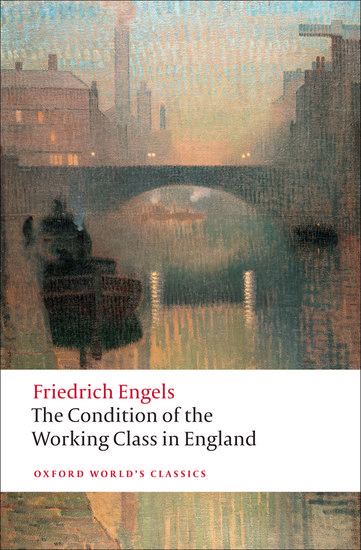What do you think?
Rate this book


336 pages, Paperback
First published January 1, 1845
'The English working men call this 'social murder', and accuse our whole society of perpetrating this crime perpetually. Are they wrong? (38)
I have now to prove that society in England daily and hourly commits what the working-men's organs, with perfect correctness, characterize as social murder, that it has placed the workers under conditions in which they can neither retain health nor live long; that it undermines the vital force of these workers gradually, little by little, and so hurries them to the grave before their time. I have further to prove that society knows how injurious such conditions are to the health and the life of the workers, and yet does nothing to improve these conditions (107).
'I forsook the company and the dinner parties, the port wine and champagn of the middle classes, and devoted my leisure hours almost exclusively to the intercourse with plain Working Men(9)
Can anyone imagine a more insanse state of things?...this condition, which unsexes the man and takes from the woman all womanliness...(155)
In short, the Irish have discovered the minimum of the necessities of life, and are making the English workers acquainted with it. Filth and drunkeness, too, they have brought with them (103)
The town itself is peculiarly built, so that a person may live in it for years, and go in and out daily without coming into contact with a working-people's quarter or even with workers, that is, so long as he confines himself to his business or to pleasure walks. This arises chiefly from the fact, that by unconscious tacit agreement, as well as with outspoken conscious determination, the working-people's quarters are sharply separated from the sections of the city reserved for the middle class; or, if this does not succeed, they are concealed with the cloak of charity (57)
The finest part of this arrangement is this, that the members of the money aristocracy can take the shortest road through the middle of all the laboring districts to their place of business, without ever seeing that they are in teh midst of the grimy misery that lurks to the right and the left. ...they suffice to conceal from the eyes of the wealthy men and women of strong stomachs and weak nerves the misery and grime which form the complement to their wealth (58).
If anyone wishes to see in how little a space a human being can move, how little air--and such air!--he can breathe, how little of civilization he may share and yet live, it is only necessary to travel hither (65)
The great cities are the birthplaces of labour movements; in them the workers first began to reflect upon their own condition, and to struggle against it; in them the opposition between proletariat and bourgeousie first made itself manifest; from them proceeded the Trade Unions, Chartism, and Socialism. The great cities have transformed the diseases of the social body, which appears in chronic form in the country, into an acute one, and so made manifest its real nature and the means of curing it. Without the great cities and their forcing influence upon the popular intelligence, the working class would be far less advanced than it is. Moreover, they have destroyed the last remnants of the patriarchal relation between working men and employers...(133)
The history of these Unions is a long series of defeats of the working men, interrupted by a few isolated victories. All these efforts naturally cannot alter the economic law according to which wages are determined by the relation between supply and demand in the labour market. Hence the Unions remain powerless against all great forces which influence this relation (224)